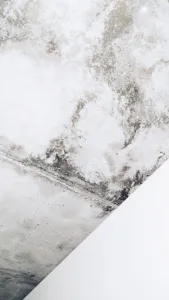 It’s fairly common to find mold and mildew in your home. But that doesn’t mean it’s okay to ignore or put off taking care of it. With the many different types of mold that can grow and spread, it’s important to be knowledgeable about why household mold is dangerous. ServiceMaster of Baltimore has been a leading mold remediation company in Baltimore for decades, and we want to help you keep your home safe from the harmful effects of mold.
It’s fairly common to find mold and mildew in your home. But that doesn’t mean it’s okay to ignore or put off taking care of it. With the many different types of mold that can grow and spread, it’s important to be knowledgeable about why household mold is dangerous. ServiceMaster of Baltimore has been a leading mold remediation company in Baltimore for decades, and we want to help you keep your home safe from the harmful effects of mold.
Why Mold Exposure is Dangerous
It’s important to try and stop mold from spreading throughout your house because it produces allergens and irritants. It’s also common for people to experience allergic reactions to it. People with asthma and those who are immunocompromised are most at risk for health problems from household mold, but anyone can experience its effects on the respiratory system. Symptoms from mold exposure can include sneezing, runny nose, red eyes, skin rash, coughing, wheezing, and even difficulty breathing.
Types of Mold Found in Homes
The common molds that are found inside the household are classified as allergenic, pathogenic, or toxigenic.
Those with allergies and asthma are most affected by allergenic molds. Pathogenic molds are dangerous because they can cause infections when inhaled. But among the three classifications, toxigenic molds are the most dangerous to people, and even animals. These types of molds can lead to serious health conditions, such as lung disease.
Getting Rid of Mold on Your Own
If you’re able to find it early, household molds can be fairly easy to treat using widely available disinfectants. However, you do want to be careful when cleaning mold because you don’t want to cause the spores to spread, especially in a humid environment.
The best way to destroy mold is with household bleach (you’ll want to dilute it before using it though, as it’s quite harsh). Hydrogen peroxide can also be used (three to 10 percent solution). It will work slower than bleach, but doesn’t create any toxic fumes. Distilled white vinegar is another good option for cleaning household mold. The acidity of vinegar allows the mold to be slowly broken down, eventually killing it. Although this is a non-toxic option, it may not fully remove the stains left from the mold and will require additional scrubbing with a household cleaner.
Baltimore Mold Remediation
Mold spreads very quickly. If it’s not dealt with immediately, it can become a hazardous problem, as well as create health issues for those in your household. If your situation is more than you can handle on your own, it’s time to call the professionals. At ServiceMaster of Baltimore, our trained technicians use the most updated and refined techniques in mold remediation to deliver the highest quality results. Call us at (410) 498-8030 and let us help you get rid of troublesome household mold for good.

